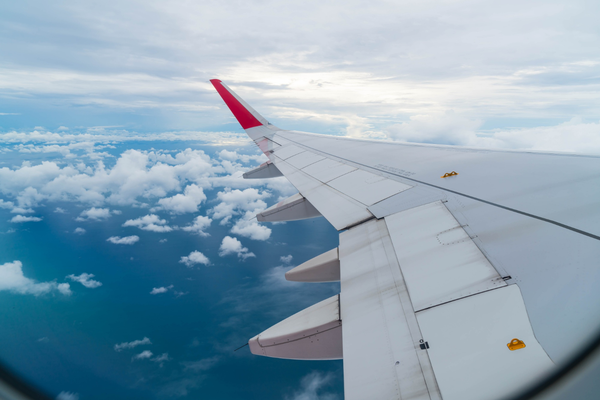India's budget airline Go First has filed for bankruptcy and suspended flights due to technical issues. The airline claims that "faulty" Pratt & Whitney engines caused the grounding of approximately half of its fleet.

Go First is the first entity owned by the Indian conglomerate Wadia Group to declare bankruptcy. The airline is the first major Indian carrier to collapse since Jet Airways filed for bankruptcy in 2019 and only the third major airline bankrupt since 2012.

Go First filed for bankruptcy after the airline's supplier Pratt & Whitney refused to follow an arbitration order that would have provided spare leased engines for the continuation of flight operations. Pratt & Whitney provides the Geared Turbofan engines for Go First's Airbus A320neo aircraft fleet.
The airline claims that Pratt & Whitney's "faulty" engines have created unnecessary expenses, including 108 billion rupees in lost revenue. Go First additionally claims that the percentage of its currently grounded fleet has risen from 7% in December 2019 to 50% in December 2022.
On the other hand, Pratt & Whitney is blaming supply chain issues that have affected manufacturers across the aerospace industry. The company expects production to increase later this year once supply chain pressures ease. Pratt & Whitney's parent company Raytheon Technologies has promised that new engines will be improved after acknowledging that previous engines had reliability issues.

According to the bankruptcy application submitted to the National Company Law Tribunal, Go First's board members and management will be required to transfer their power to a resolution professional appointed by the forum. The airline's highest-ranking officials include the Wadia Group's CEO Nusli Wadia, his son Ness Wadia, and airline chairman Varun Berry.
Go First owed 65.21 billion rupees in debt to financial creditors as of April 28, which the airline has not yet defaulted on. The carrier has defaulted on its dues to operational creditors, including 12.02 billion rupees to vendors and 26.6 billion rupees to aircraft lessors.

The airline suspended its entire flight operations from Wednesday, May 3 to Friday, May 5. These flight cancellations could affect up to 90,000 people currently booked on Go First flights.
India's aviation authority, the Directorate General of Civil Aviation (DGCA), is allowing the airline to suspend operations for only three days. The agency is requesting that Go First provide a "plan of action to operate flights as per approved schedule from May (6), 2023."
India's civil aviation minister Jyotiraditya Scindia said, "It's incumbent upon the airline to make alternative travel arrangements for passengers so that inconvenience is minimal."

This event is happening amid increasing consolidation in the country's aviation sector, which is currently dominated by Air India and Indigo. Air India is expected to grow even larger after Tata Group - the conglomerate that owns the carrier - decided to merge Vistara with the airline.
Go First's collapse is expected to positively and negatively affect India's aviation industry. The airline's competitors could receive more traffic amid a rapid increase in domestic travel demand. However, flights could become more expensive now that fewer airlines can satisfy that demand. The impact of Go First's bankruptcy on the aviation market remain to be seen.
The Future Of Aerospace: Integrating Satellite Analytics With Aviation Systems »
Comments (0)
Add Your Comment
SHARE
TAGS
NEWS India Go First A320neo Pratt & Whitney GTF BankruptcyRECENTLY PUBLISHED
 The Future Of Aerospace: Integrating Satellite Analytics With Aviation Systems
The aerospace sector is undergoing significant change as space technologies blend with aviation. Having the most up-to-date satellite images now means progress in air traffic control and weather forecasting.
INFORMATIONAL
READ MORE »
The Future Of Aerospace: Integrating Satellite Analytics With Aviation Systems
The aerospace sector is undergoing significant change as space technologies blend with aviation. Having the most up-to-date satellite images now means progress in air traffic control and weather forecasting.
INFORMATIONAL
READ MORE »
 The Swiss Standard of Comfort Transfers: Clean, Timely, Elegant
For luxury travellers and business clients, the Swiss standard of transport is not merely about getting from one point to another - it is about arriving in comfort, style, and absolute professionalism.
INFORMATIONAL
READ MORE »
The Swiss Standard of Comfort Transfers: Clean, Timely, Elegant
For luxury travellers and business clients, the Swiss standard of transport is not merely about getting from one point to another - it is about arriving in comfort, style, and absolute professionalism.
INFORMATIONAL
READ MORE »
 Mount Everest Summit: Cheaper by Helicopter, But is it Worth it?
Climbing Mount Everest is neither an easy nor a cheap feat. At a height of just over 29,000 feet (~8,849 meters), reaching the summit of the world’s tallest mountain nearly puts climbers at the height at which aircraft cruise. Today, we will examine and compare the costs of the two primary methods used to experience Mount Everest: by actually climbing the mountain or by taking a helicopter tour.
STORIES
READ MORE »
Mount Everest Summit: Cheaper by Helicopter, But is it Worth it?
Climbing Mount Everest is neither an easy nor a cheap feat. At a height of just over 29,000 feet (~8,849 meters), reaching the summit of the world’s tallest mountain nearly puts climbers at the height at which aircraft cruise. Today, we will examine and compare the costs of the two primary methods used to experience Mount Everest: by actually climbing the mountain or by taking a helicopter tour.
STORIES
READ MORE »



